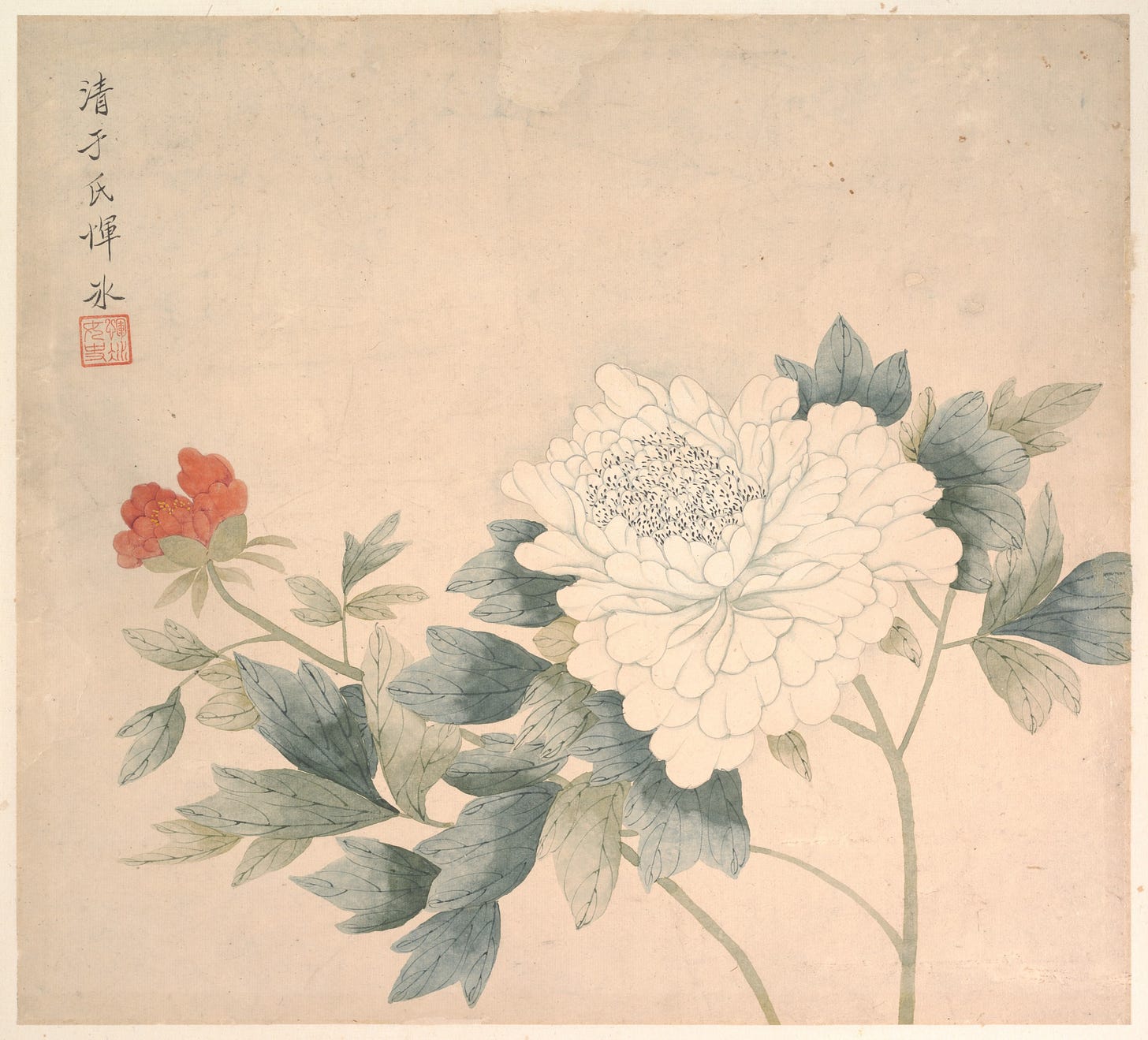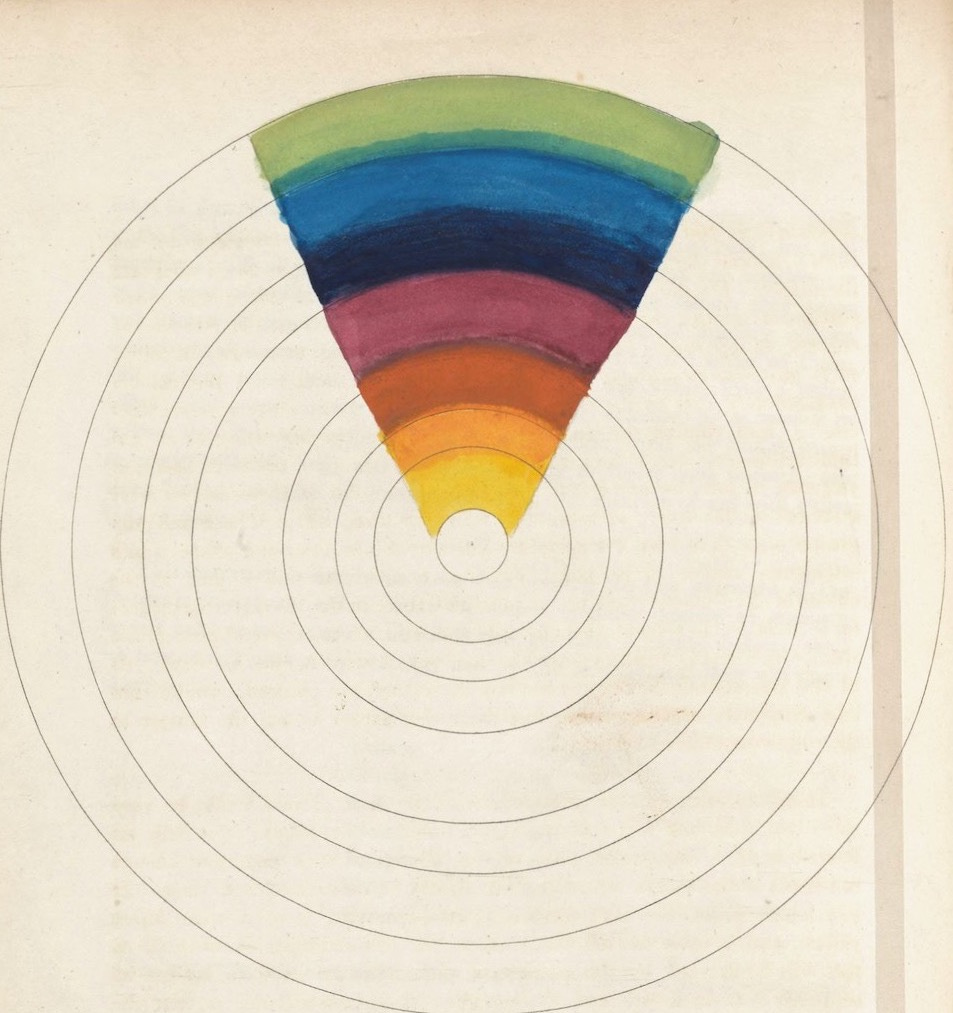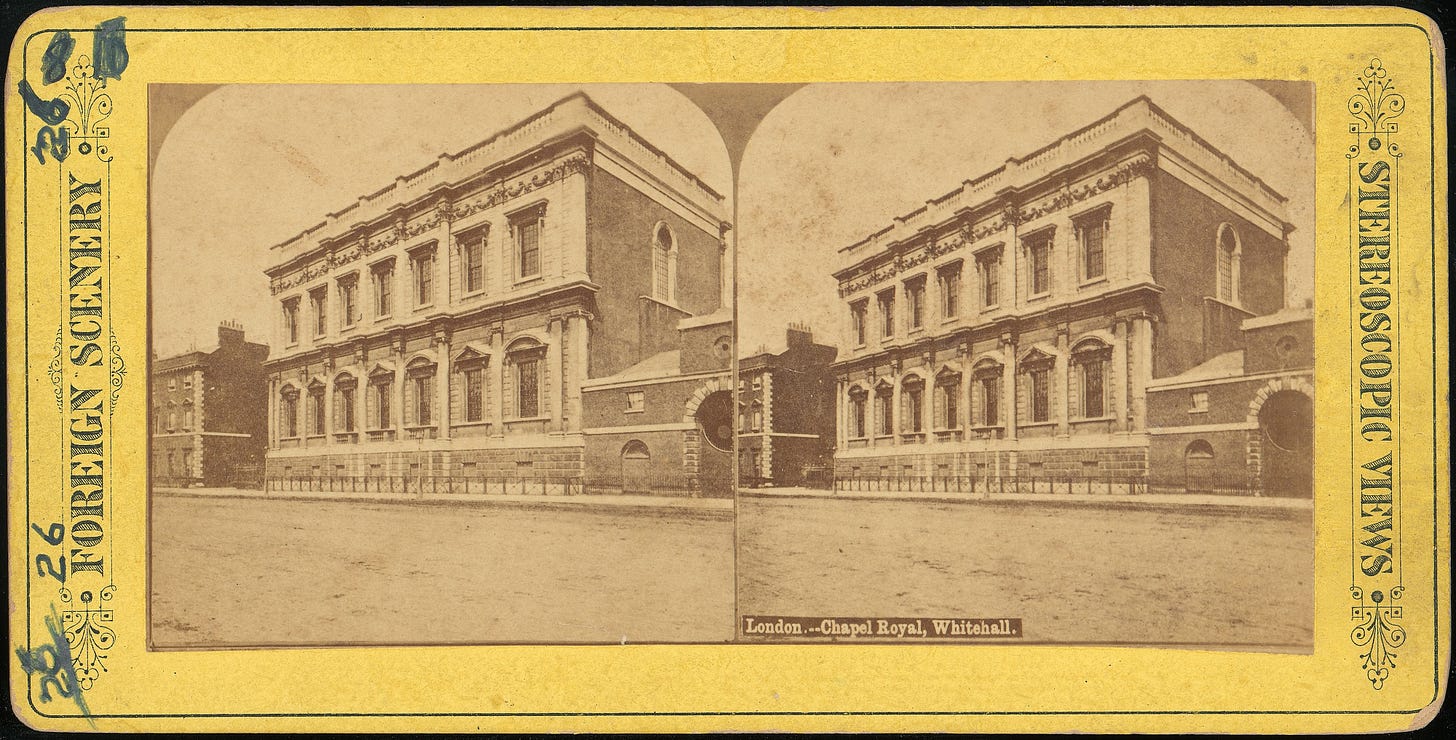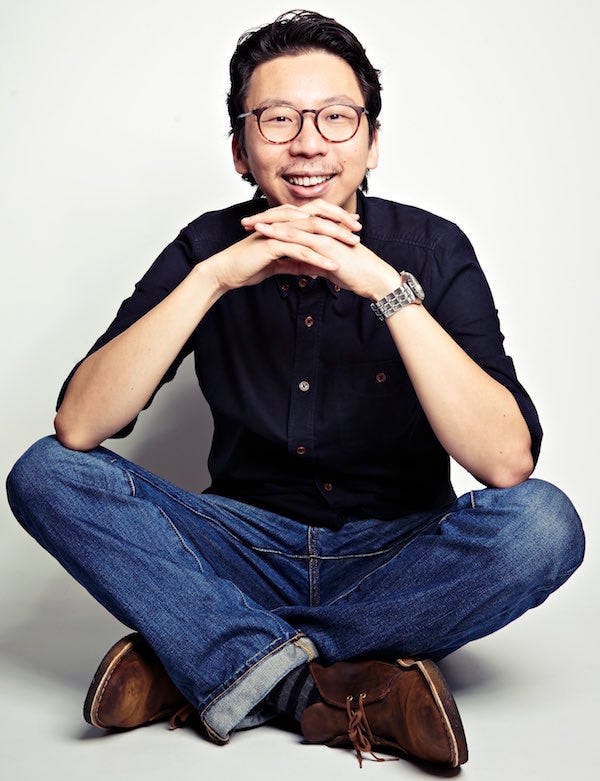Sudden Moments of Influence
What are your transformational moments?
It's 1997. I'm in a classroom that I'm not sure I want to be in. What in the world am I doing in a Business Administration course? This is really not for me.
The class has yet to begin. I can't even recall what class it was for, but it was a big room, and it’s just the lecturer and I.
It’s a little awkward.
I put my head down. I take out my notebook and started to write. I turned on the Discman. OK Computer on repeat. Earbuds on.
I could tell that she’s now trying to speak to me. Earbuds off.
She asks, "Are you Daryl?"
"Erm, yeah," as if I wasn't sure of what the correct answer was.
"I see that you are a writer. I read your poetry."
Suddenly, I feel a flood of embarrassment. I am exposed. Did I leave my notebook somewhere? Has she read my stuff??
She could tell that I was stunned. She smiles and says, "I read your entry in the school newsletter. It's really good…You have a gift with your words, and you should continue."
After a moment of puzzlement, I realised what she was referring to.
About two months ago, I saw a poetry competition posted by the polytechnic. I was desperate for money and validation. I submitted a piece,1 and didn't think much of it. Besides, I’m not the kind of person who wins prizes.
And then I won the first prize. $100.
I not only had no idea that I won,2 but I didn't know they published the piece in the campus's newsletter.
I was sooo embarrassed.
What if people thought I was some "emo" kid? What if they made fun of me? What if I was the only person who submitted an entry?
This teacher clearly didn't think so.
I can't even remember her name. But her words made such a deep and lasting impact on me, ricochetting another memory I had a few years prior.
In his British accent, Mr. Crawshaw read out loud a composition to the entire class in my all-boys secondary school. After he was done, he said, “This writer is poetic.” The class burst into a mocking fit of laughter.3 Then he called my name to pick up the composition from him, and I suddenly realised it was my work he had been reading.
The embarrassment lasted for days, and the teasing from my classmates continued. But years later, Mr. Crawshaw’s remark changed how I felt about myself. Even though I wasn’t doing well academically in secondary school, I internalised the possibility that, actually, I can write. For me, this moment was a turning point, which was further amplified by the words of my polytechnic lecturer that I met a few years later.
Transformational Moments
Our lives are littered with pivotal moments of influences. It's easy to let them pass you by.
But if you take a moment to pull out from your memory bank, I bet you'd find a few.
Here are some examples, taken from Michael Rousell's book, The Power of Surprise: How Your Brain Secretly Changes Your Beliefs
1. As a teen, Academy Award-winning singer and songwriter Carly Simon dreaded that her stammer would become an item of ridicule among her peers. While hanging out with her boyfriend Nick, he surprised her by laughing compassionately at her anguish and referring to her stammer as “charming.” She credits this surprise episode as a turning point in her life. She now had a new belief about her stammer—charming. That surprise changed how she felt about herself.
2. Eleven-year-old Cindy used to believe her slow test-taking indicated a lack of intelligence, but that changed instantly. While Cindy anxiously finished a test, the librarian surprised her by naming her slowness as “attentive deliberation that shows grit.” She now writes her tests slowly, with confidence. After all, she’s got grit.
3. From graduate student in education:
When I was in fourth grade, we were taking a standardized reading test in the computer lab. The librarian Mr. R supervised us. Once again, I got to the point when I was the only one left in the computer lab. I felt extremely embarrassed and stupid. Mr. R came over to me and said, “You know, the people who usually take the longest on a test often do the best.”
Wow! This changed my whole life. From that point forward, I never cared if I was the last to finish, and I stopped rushing to the end of my test when I saw that my classmates were finishing up. Now I know that given enough time, I can do anything that anybody else can do
The Flipside of Sudden Moments of Influence
Words have power, for better or for worse.
Among us kids in the eighties and nineties, it was such as a big thing to be called "stupid." It was like a trigger word for many of us in school and at home. The entertainment industry in Singapore caught on to this phenomena, given that we were so heavily focused on academic performance. A trilogy of movies even mad about this called, "I Not Stupid."
Even though I did poorly in my early education and nearly earned a P.H.D prematurely (polytechnic halfway dropout), I was lucky enough to pursue higher education in both Singapore and Australia. I have met some inspirational figures in my undergraduate period in Queensland, made some wonderful friends in my Masters in Singapore, and later on, went to Perth for my doctorate (When I was given a scholarship to do so, I really thought that the faculty had made a terrible mistake. It must have been for some other guy.)
After several weekly meetings with my supervisor for my actual Ph.D., pouring through my drafts, she said to me, "Is English your second language?"
I was shocked.
And offended.

If my Chinese teacher in Secondary school were to hear this, she would laugh her head off. I was called a "Banana" in school (i.e., yellow on the outside, white on this inside). I could hold a casual conversation in Chinese, but most people saw me as the "English speaking type."
So now, it seems like I can’t even write decently in English….
All I could muster replying my supervisor was, "...What?!"
Quietly, I plundered into self-doubt. I couldn't believe it. Was my writing that bad? Was it incomprehensible? Was I not making sense in English? It's not like I had another language that I could fluently write in. I couldn't say, "Please excuse me. I think in Chinese in my head, so it's hard to translate to English in writing." That was not what's happening. I am a banana.
Thankfully, I had an external supervisor who could validate not just my feelings, but specifically look at my writing and comment on it.
"Made sense to me," He said. "Apart for some grammatical errors, I don't know what she's talking about."
Words have power to make or break. They can give life, or they can diminish you. Sometimes, we diminish others to make ourselves more powerful. Be very careful of these power games.
Beliefs Revision
Surprises are a catalyst for belief revision, acting as a neurological error signal that indicates our expectations about the world are not working.
At moments of such surprising input, our prior beliefs are challenged.
Moviemakers, storytellers, comedians, magicians and musicians use this to its full effect. They play with both familiarity and novelty, where the familiar anchors us for a little while, and then the novel element upends our prediction and expectation.
And we like that. It’s dopaminergically rewarding.
When someone makes a surprising comment about us, a neurological storm takes place, which in turn leads to a cognitive disruption as we reorient our attention during this heightened state to the unexpected stimulus.
As Rousell points out, unlike other emotions, surprise requires interpretation. He says,
This distinctive feature makes the meaning of surprise hackable...
Imagine that you are working on a shared project when your friend unexpectedly roars, “Wow! That’s just great!” Surprised, you don’t instantly know whether the comment is sarcasm or genuine de-light. The nuanced meaning of the tone and words is not immediately clear. How you perceive (interpret) this event makes an enormous difference: shame, “I’m an idiot,” or elation, “I’m brilliant.” Other emotions, such as happiness and fear, come with neurological signals to approach or avoid.
In other words, experiences of surprise opens us up for the possibility of belief revisions. “ I thought it was this, but it was actually that,” "I thought I couldn’t do this, but I’m actually I can. "
Before you sneak up on your friends and family with a big "BOO!", know that we're not talking about surprises meant to startle or shock.
The kind of surprise that I am referring to are the ones that not only creates a impactful moment, but lingers on in a profound way, thereby reshaping the stories and beliefs we carry about ourselves and the world. A broader concept that entails surprise can be called sudden moments of influence.
Why is it Important to Reconsolidate Your Memories?
And these sudden moments can have positive or negative influence on you.
At this point, it’s worth briefly looking at the construction and reconstruction of memories.
Memories are less like a recording device and more like Wikipedia, constantly amenable to updating when new inputs arises. You can change it, and so can others.4
Michael Rousell adds,
The ability of memories to travel back in time is an important clue to be vigilant when something significant occurs. If something traumatic happens to you or you witness it with another, take care to see that the effects of the event are localized [emphasis mine] to the event itself.
Children are particularly vulnerable. If a child stumbles and you call him clumsy, that might stick. If that child stumbles and you comment that he recovered quickly, that might stick too.
When we recall a memory, we do not simply play it over like a tape recording. Instead, the act of recall is a reconstruction process that blends stored information with our current state of mind.
This is one of the reasons working through our life story, looking through our high points, low points and turning points can have a profound impact on our lives. (More on this exercise in the upcoming book, Crossing Between Worlds).
Sudden Moments of Influences are Turning Points

I'm not sure how it came to be, but my cousin and I ended up giving the eulogy at our grandpa's funeral.
We were 13-14 years old.
I'm a nervous and quiet kid. I'm not sure how I thought I was going to pull it off. Thankfully, cousin Denise was also going to give her speech after mine. So in some way, we were in the same boat. Plus, Grandpa was a significant figure in both our lives. Even though he had a bit of a messy history with gambling, he loved kids. It would be a chance for us kids to pay tribute to him.
At the end of it, Auntie Nancy came up to me. She looked me in the eye. She said she loved the quote I used at end. And then she said, "You are a good public speaker."
Frankly, I didn't think too much of it at that time. She's just being nice. She's always nice.
More than three decades later, Auntie Nancy's words still sticks. Looking back, that was an inflection point for me. I had never, ever considered myself someone who would like to do any sort of public speaking. You know the cliche about ‘what's people's greatest fear besides death? It’s public speaking.’ That rang true for me.
Somehow my auntie's words opened up a new door within me that I previously didn't see in myself.
Your Transformational Moments

I would like you, dear reader, to take a moment and write down your transformational moments in your life.
What was something someone said to you that meant a lot?
And why was that significant for you on a personal level?
Jot them down. Look at them. Make a note in your calendar to re-look at them again in a month’s time. More will bubble up from your memory bank.
Finally, if you see something in someone you care about, give it voice. Bring what you see into speech. Tell them what’s hidden in plain sight that you see and appreciate about them, or even what you like about that person.
No need for false praise. Just what you notice.
Begin to notice others.
Go out there and bring those words to life to others, as others have gave you life through their care and words.
Thanks for reading Full Circles: Meditations on the Inner and Outer Life. Subscribe for free to receive new posts and support my work.
Daryl Chow Ph.D. is the author of The First Kiss, co-author of Better Results, and The Write to Recovery, Creating Impact, and The Field Guide to Better Results .
If you are a helping professional, you might like my other Substack, Frontiers of Psychotherapist Development (FPD).
If I recall, it was called The Fall.
The cheque only came in a month later.
In case you are wondering why my classmates were laughing, boys at that age behave differently when it’s all boys only. We make a ruckus at nearly everything possible.
This is a paraphrase of a statement made by Elizabeth Loftus, a pioneering figure who studied false memories.







Loved this! I often called transformative moments motif moments!